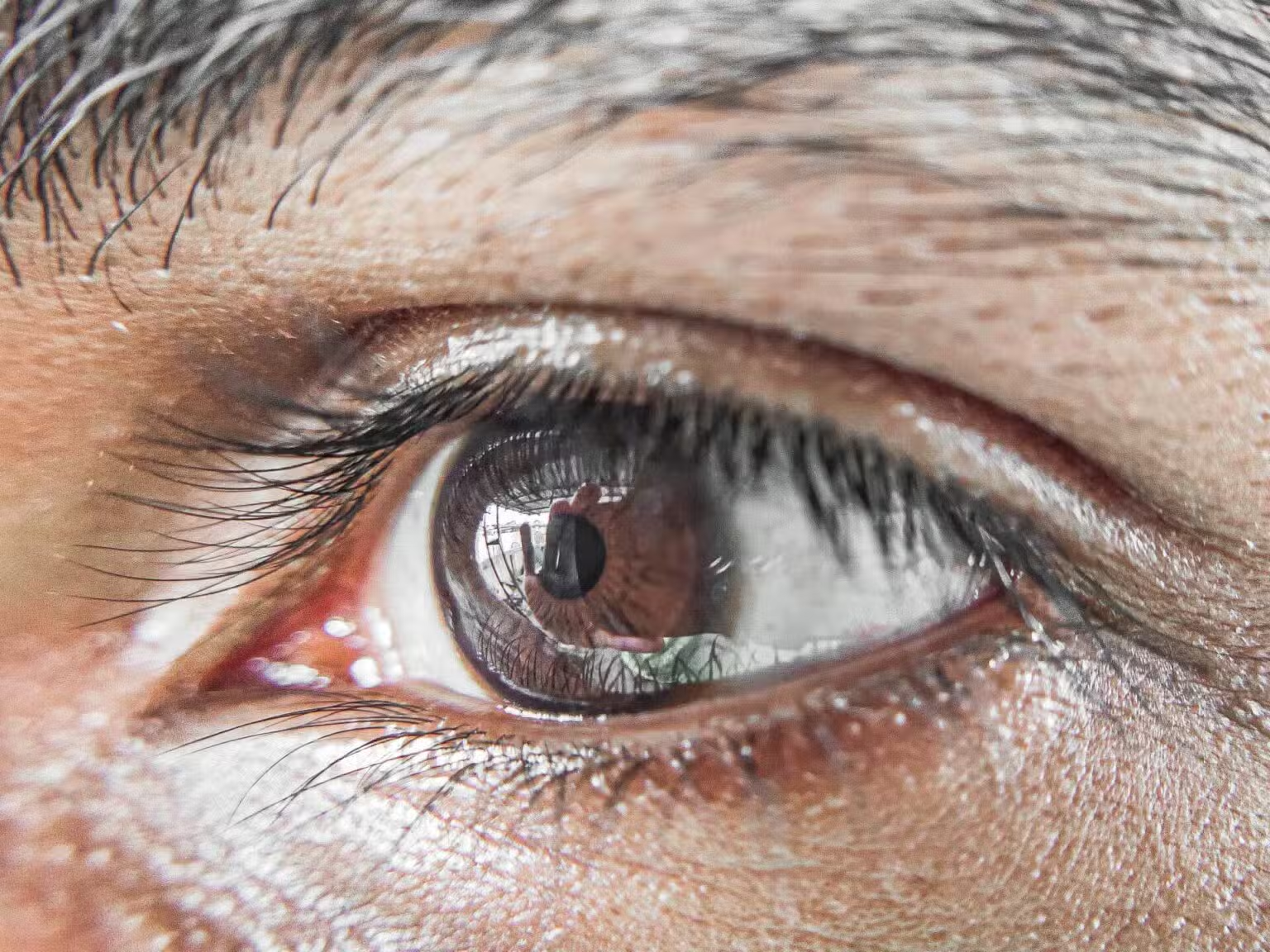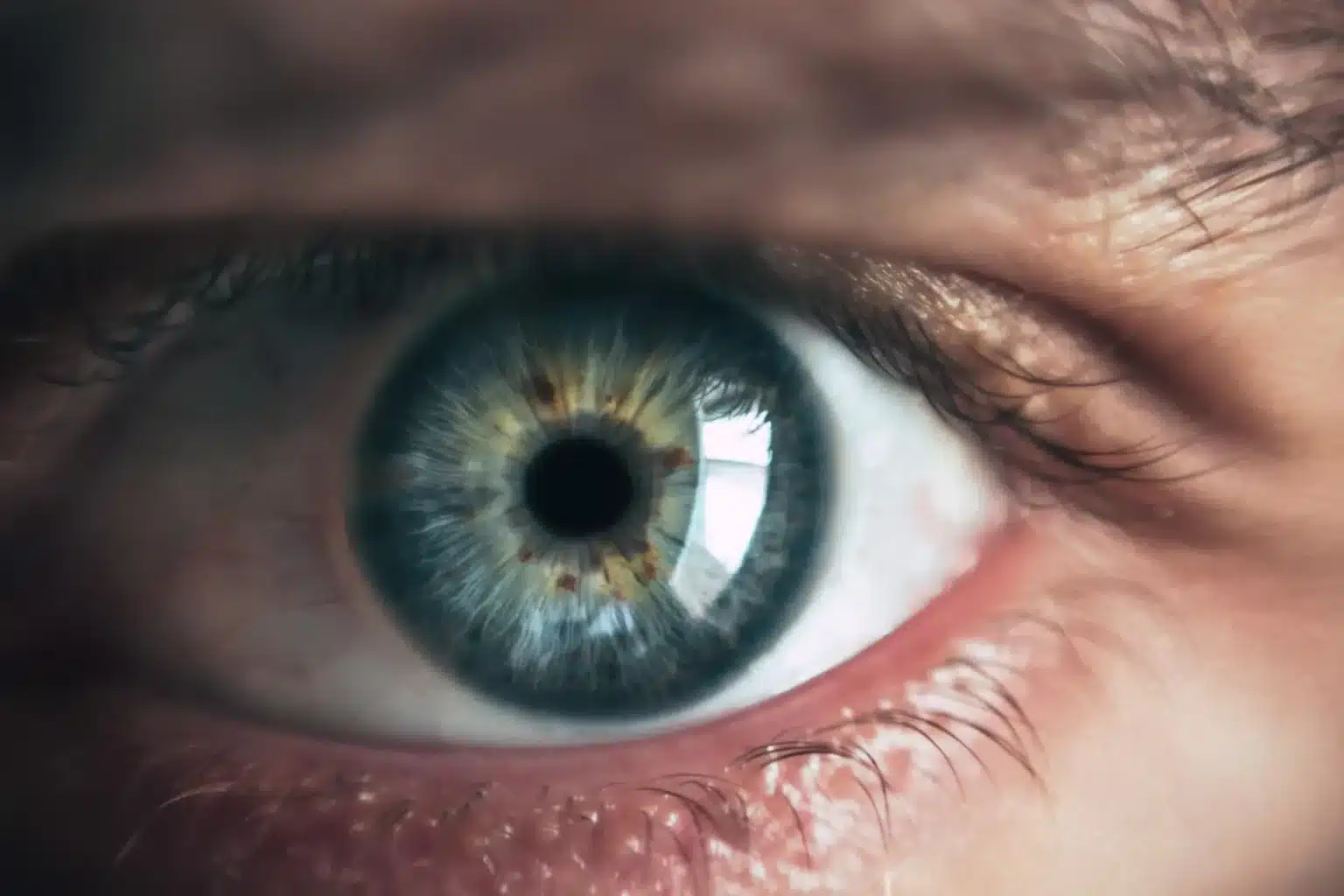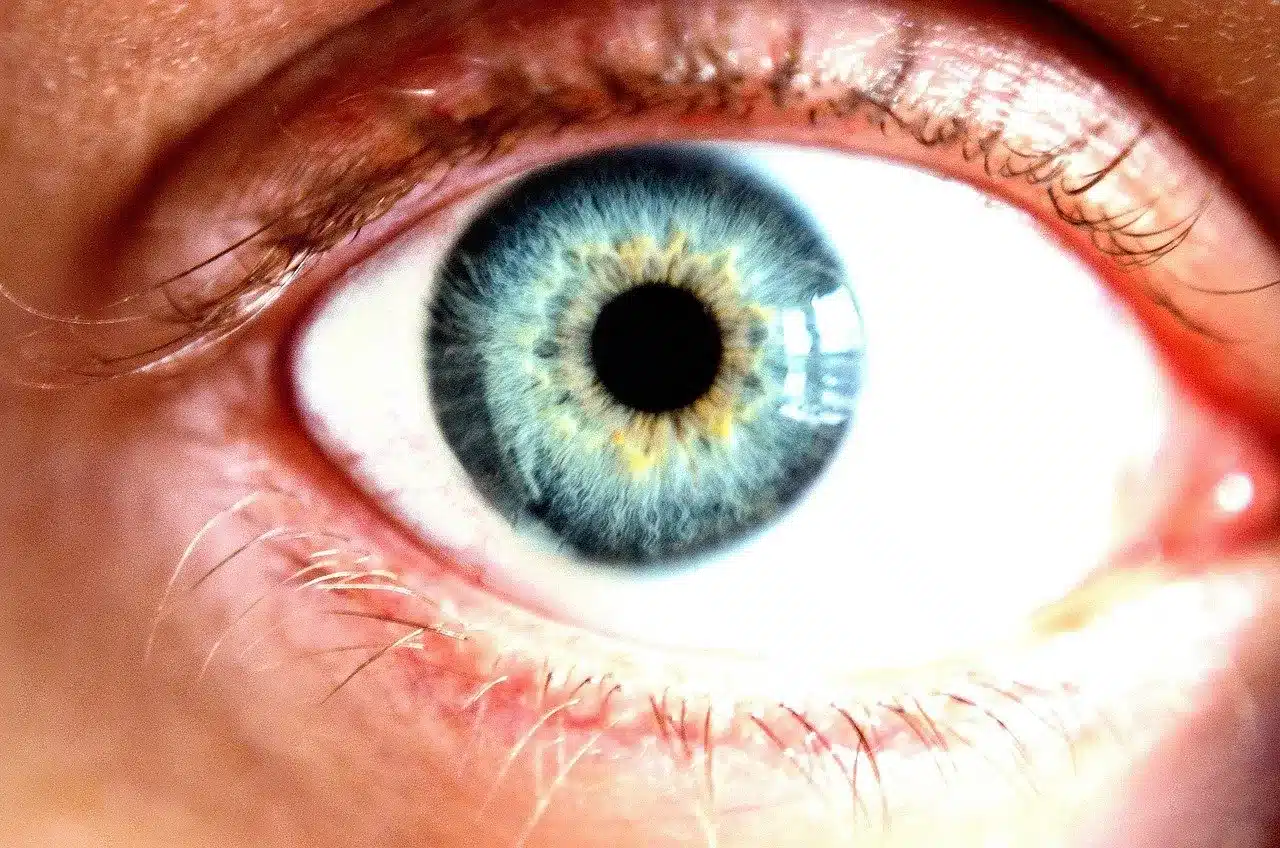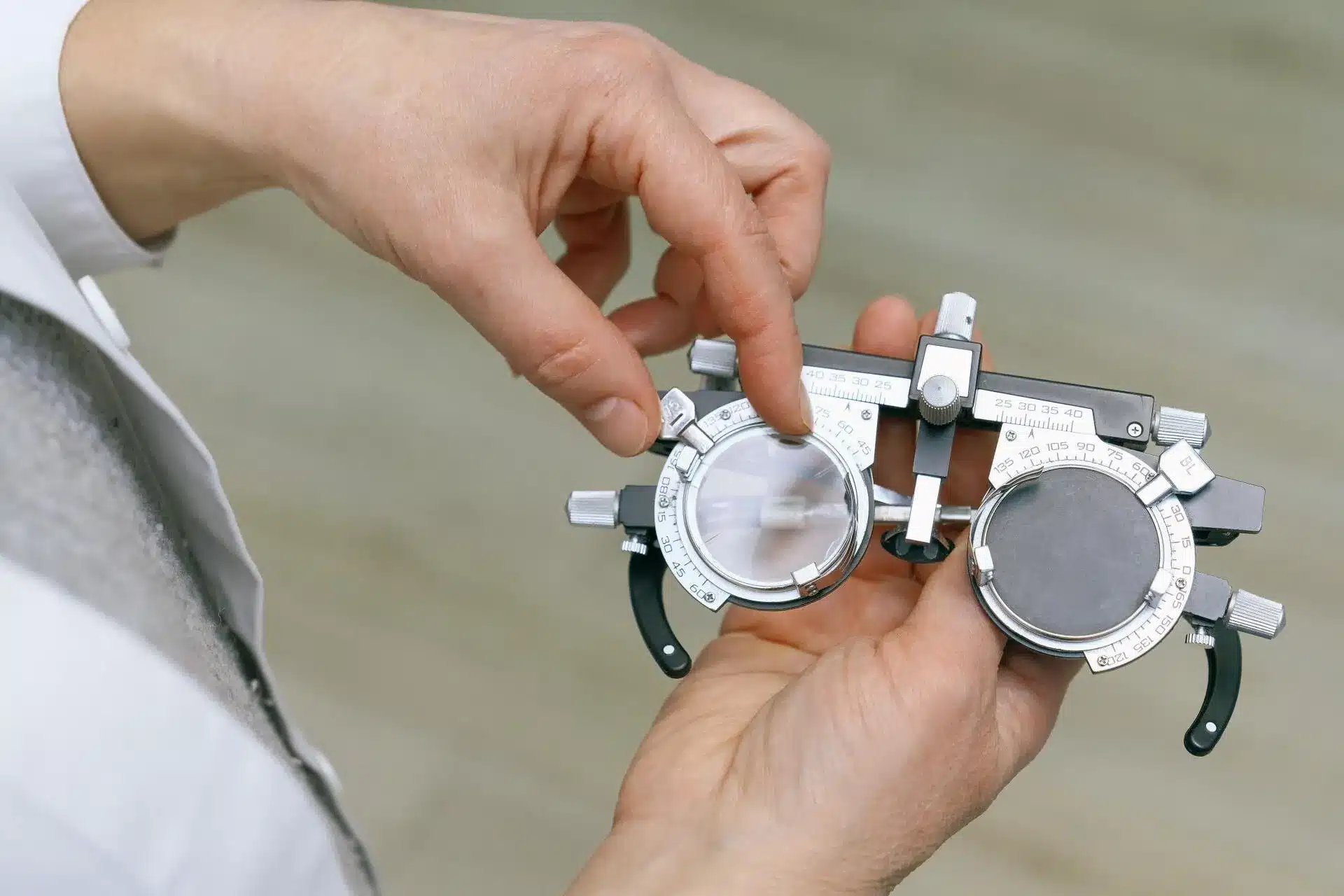The human eye is made up of a variety of structures working together to give us the beauty of vision. These structures include the cornea, iris, pupil, aqueous humor, lens, vitreous humor, retina, and optic nerve. A person’s vision relies on the healthy functioning of each structure.
Over time, due to the normal aging process and a wide range of other causes, vision problems — such as vision impairment and vision loss — are inevitable. Not only does this take away from your quality of life, but it can lead to a variety of other health concerns as you grow older.
One of those vision concerns that many people will experience in life is eye floaters and flashes. In fact, it’s estimated that nearly 70% of the population experience these at some point in their life. Don’t worry, we’re going to break down everything you need to know about floaters below.
So, what are floaters?
Eye floaters are characterized by black or gray specks that ‘float’ across your field of vision and seem to dart away when looking at them directly. They generally appear when you move your eyes and are more noticeable when looking at something bright — the blue sky or white paper.
Floaters are essentially tiny shadows that are cast upon the retina when tiny microscopic fibers in the vitreous gel start clumping up. The vitreous is a jelly-like substance that maintains the round shape of your eye and ensures it remains attached to the retina ( in the back of the eye).
In addition to floaters, many people experience flashes in the eye. Light flashes happen when the gel-like vitreous shrinks over time. As it shrinks, the vitreous pulls apart from the retina. This is also called posterior vitreous detachment and is more common as you grow older.
Symptoms of Eye Floaters and Flashes
Eye floaters can be annoying for anyone that has to experience them, but they generally don’t interfere with your ability to see clearly and won’t require immediate attention. Most people won’t even realize they have floaters and only experience them periodically throughout the day.
Let’s take a look at some of the most common symptoms of eye floaters:
- Black or grey specks across your visual field
- Squiggly lines across your visual field
- Thread-like, see-through strands across your visual field
- Cobwebs or rings across your field of vision
- Spots in your vision when looking at a plain, bright background
- Spots in your vision that move when your eyes move
- Spots that seem to disappear when you look directly at them
If you start to experience floaters in the eye, they won’t go away. The good news is they generally become less noticeable the longer you have them. In the event you see flashes of light or lose your peripheral vision, this could be a sign of a much larger issue that needs attention.

Causes & Risk Factors of Floaters & Flashes
Eye floaters occur when the tiny protein fibers, also known as collagen, start clumping up inside the vitreous (the gel-like substance making up a majority of your eye). These tiny clumps cast a shadow on your retina, resulting in what we now know as a floater. They’re extremely common.
Let’s take a look at some of the major reasons you might experience an eye floater:
- Age-related changes to the vitreous humor
- Posterior uveitis, which is inflammation in the back of the eye
- Bleeding in the eye that’s caused by an eye injury, blocked blood vessels, diabetes, or hypertension
- Retinal tears or retinal detachment (especially a torn retina that isn’t treated)
- Certain eye surgeries and eye medications
There are also several risk factors that increase your chances of experiencing eye floaters. These include anyone over the age of 50, those that are nearsighted, eye trauma, cataract surgery complications, eye inflammation, and those that experience diabetic retinopathy.

When Should You See an Eye Doctor?
If you start to notice floaters in your field of vision, don’t panic. For the most part, floaters aren’t threatening to your vision and won’t pose any major problems. They might be annoying and a nuisance, but they only occur periodically throughout the day and won’t overstay their welcome.
It’s a good idea to notify your eye doctor when you start experiencing floaters, that way they can have it on record. Outside of that, there are only a few instances where you should seek immediate attention from your eye doctor, including:
- A sudden increase of new floaters
- Noticing more floaters than usual
- Flashes of light, in addition to floaters
- Darkness on one or both sides of your visual field (peripheral vision)
- Eye pain or floaters after eye surgery
If you start to experience any of the above symptoms, contact your eye doctor immediately. There’s a chance you could be experiencing a retinal tear or retinal detachment. These conditions require immediate attention and could require surgery to repair the retina or vitreous.
How Are Eye Floaters Treated?
Most floaters won’t require treatment, especially if they aren’t contributing to any other vision concerns. With that said, the patient will need to learn to live with them. The good news is they typically disappear or float away when you move your eyes up and down or side to side.
In more rare cases — where the floaters interfere with the ability to see — your eye doctor might recommend a surgical procedure to avoid permanent vision loss. For example, a vitrectomy replaces your vitreous with a salt solution (saline solution) to maintain the eye’s round shape.
Your eye doctor might also recommend removing floaters with the use of a laser, though this method is rarely used due to the risk of damaging the retina.

Contact Milwaukee Eye Surgeons Today!
Eye health is essential to living a normal, happy, and rewarding life. Even subtle eye conditions, such as eye floaters and flashes, can eventually lead to vision loss if not diagnosed and treated properly. That’s why it’s extremely important to schedule a regular eye exam with an eye doctor.
At Milwaukee Eye Surgeons, we have one goal and one goal only — keeping your eyes healthy so you can live a prosperous life. If you’re ready to schedule an eye exam with us or believe you’re suffering from an eye condition, don’t hesitate to contact our offices today!


